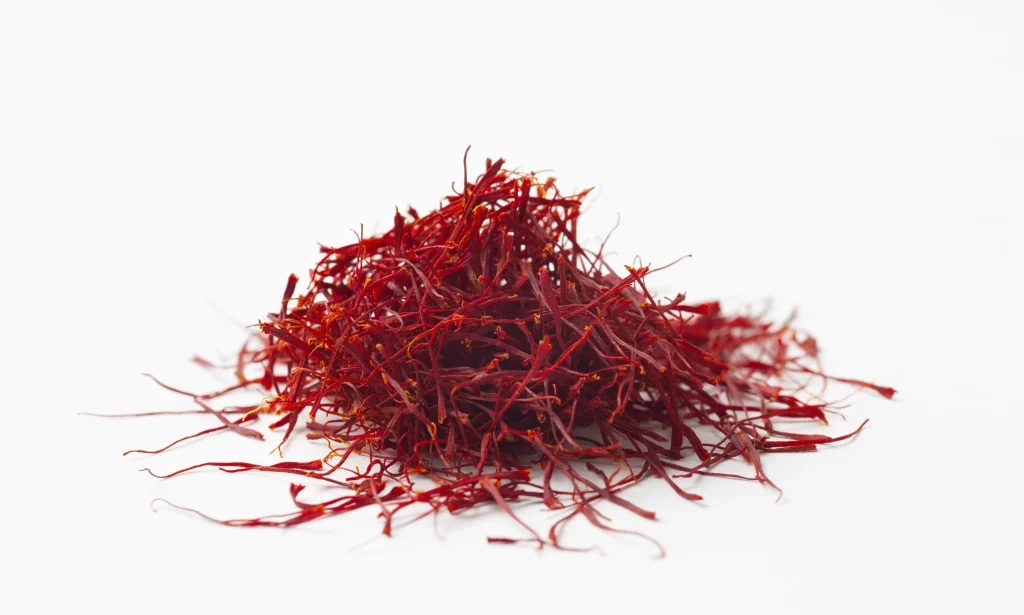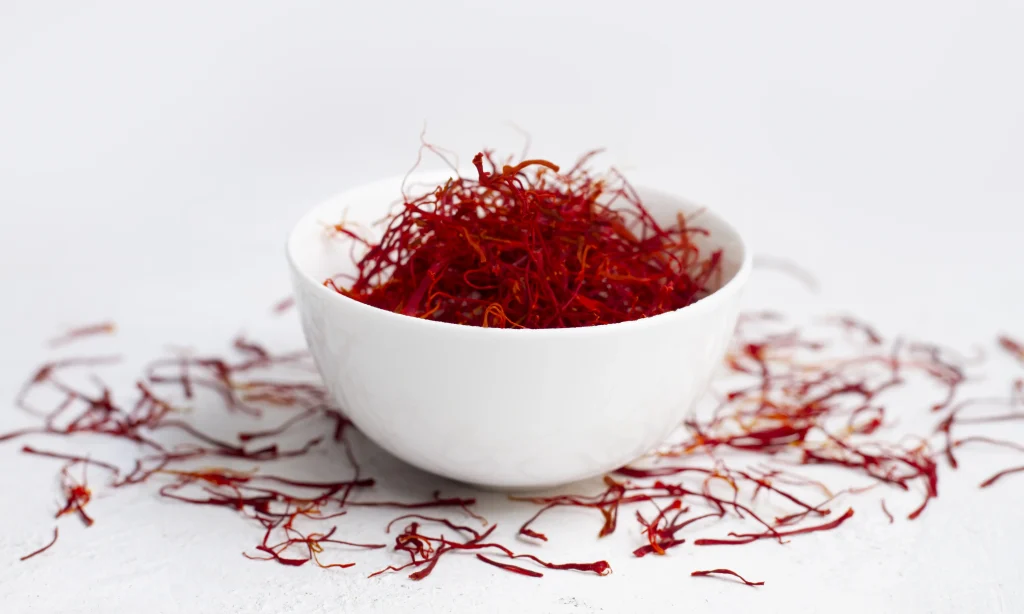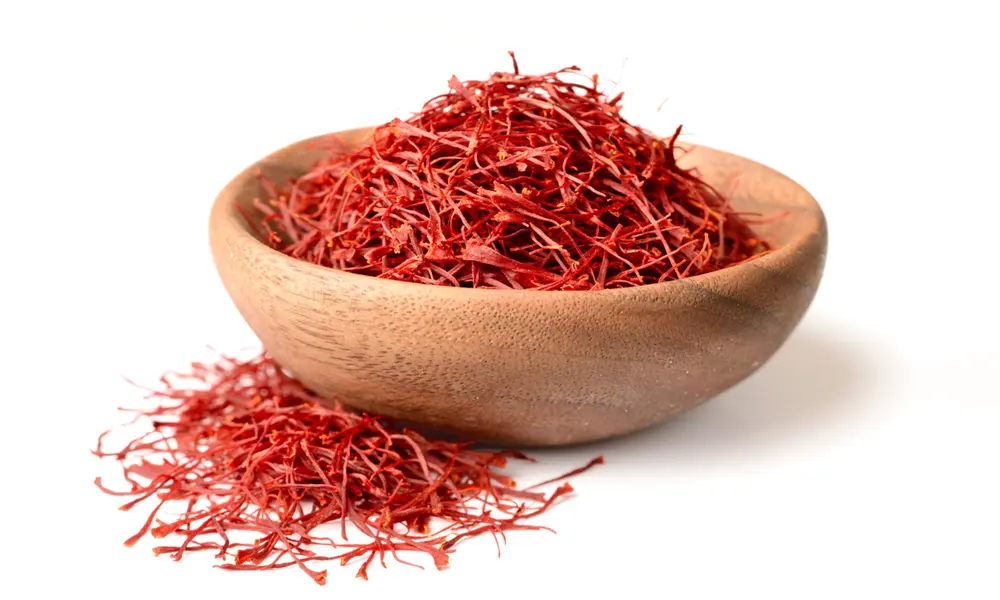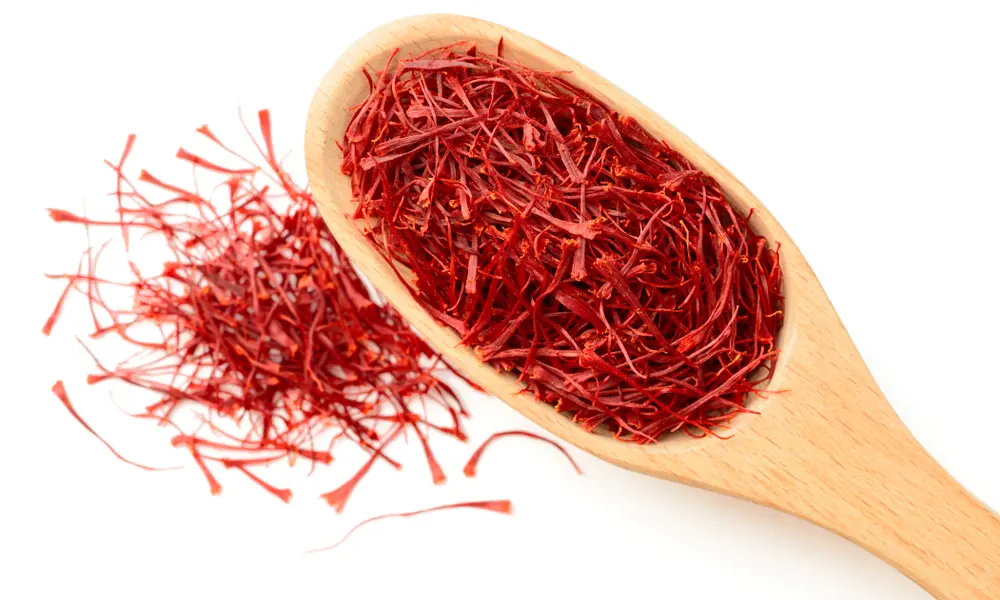Saffron Benefits for the Brain
- The Effect of Saffron on Brain Hormones
- Saffron, The Secret to a Younger Brain and Stronger Memory
- The Effect of Saffron on the Prevention and Control of Alzheimer’s
- The Effects of Saffron on the Central Nervous System
In addition to its specific role in Iranian cuisine, saffron is a great herbal treatment and a plant with a rich history. Its colour and perfume are unmatched. Many scientific studies conducted recently have demonstrated the health advantages of saffron, especially in relation to its effects on the brain.
Studies have indicated that saffron, with its special components, contributes significantly to youthfulness and brain health. Strong antioxidants found in saffron shield nerve cells from oxidative stress and delay the onset of neurodegenerative illnesses like Parkinson’s and Alzheimer’s.
Saffron improves memory and learning ability, which facilitates better knowledge storage and retrieval. Concentration and mood are also enhanced by this “red gold,” since it raises dopamine and serotonin levels in the brain. Saffron is also known to be a natural antidepressant, which means it helps lessen anxiety and despair. This spice promotes feelings of tranquilly and mood stability by raising serotonin levels.
This article aims to investigate the scientific evidence regarding the properties of saffron for the brain. Through the use of evidence and scientific reasoning, the question of how saffron can affect the health and function of the human brain will be addressed.

The Effect of Saffron on Brain Hormones
The Role of Hormones in the Brain:
Brain hormones are messenger molecules that are essential for controlling a wide range of mental processes, such as learning, emotion, memory, and focus. Several important hormones that support brain and memory function are as follows:
- Serotonin is the “happiness hormone” that helps regulate mood, sleep, and memory.
- Dopamine plays a key role in motivation, concentration, learning, and memory.
- Norepinephrine: contributes to alertness, attention, and focus.
- Acetylcholine plays a key role in learning, memory, and concentration.
Saffron’s Active Compounds and Their Effects:
- Crocin: By increasing serotonin, dopamine, and norepinephrine levels, it helps improve memory, concentration, and mood.
- Safranal: By increasing acetylcholine levels, it helps strengthen memory and learning.
- Antioxidants: Saffron is rich in powerful antioxidants such as crocin, safranal, and picrocrocin. These antioxidants protect brain cells from oxidative damage by neutralising free radicals.
Antioxidants and Saffron:
Strong antioxidants found in saffron help save brain tissue from oxidative stress. One of the main causes of neurodegenerative illnesses like Alzheimer’s and Parkinson’s is oxidative damage.

Saffron, The Secret to a Younger Brain and Stronger Memory
The well-known and extremely useful herb saffron is referred to as “red gold.” This priceless spice has several health advantages, especially for the brain, in addition to giving food a distinct flavour.
The memory-stabilising and learning-enhancing properties of saffron are achieved via a variety of mechanisms.
Protection of Nerve Cells:
- Dried saffron contains potent antioxidants that prevent oxidative harm to nerve cells.
- In addition to causing cell death and the onset of neurodegenerative disorders such as Alzheimer’s and Parkinson’s, free radicals are unstable molecules that cause cellular damage.
Enhancing the Growth of New Nerve Cells:
- By stimulating the production of fresh neurons in the hippocampus, saffron enhances learning and memory.
- Particularly relevant to episodic memory (recollections associated with personal experiences and events), the hippocampus is an essential cerebral structure that stores and retrieves information.
Strengthening neural connections:
- By increasing cerebral blood flow and facilitating neural communication, saffron enhances concentration and information processing.
- This improves the integrity of neurons and strengthens neural connections.
Regulation of Brain Hormones:
- By modulating a multitude of brain hormones, saffron significantly contributes to the enhancement of cognitive functions and brain health.
Serotonin:
- Saffron effectively modulates mood, induces a state of tranquilly, and mitigates symptoms of anxiety and depression through its ability to elevate serotonin levels.
Dopamine:
- Saffron, by increasing dopamine levels, helps boost motivation, concentration, and learning.
Norepinephrine:
- Saffron, by increasing norepinephrine levels, helps improve alertness, focus, and attention.
Cortisol Hormone:
- Saffron, by moderating cortisol levels, helps reduce stress and anxiety.
Mechanism of Action of Saffron:
- Involved in hormone metabolism and enzyme activity that is balanced, saffron aids in the regulation of hormone levels in the brain.
- Moreover, through the enhancement of cerebral blood flow, saffron facilitates the transportation of nutrients and hormones to nerve cells.
Improved Mood:
- The mood-enhancing and symptom-relieving properties of saffron are attributed to its ability to regulate serotonin and dopamine hormones.
Enhanced Memory and Learning:
- Memory, concentration, and learning are all enhanced through the regulation of dopamine and norepinephrine hormones by saffron.
Stress Reduction:
- Anxiety and stress are alleviated through the regulation of the cortisol hormone by saffron.

The Effect of Saffron on the Prevention and Control of Alzheimer’s
The Effect of Saffron on the Prevention and Control of Alzheimer’s
Alzheimer’s Disease:
Alzheimer’s disease is a degenerative neurological disorder that gradually causes memory loss, deterioration in cognitive abilities, and an inability to carry out everyday tasks. Dementia is the prevailing cause of cognitive decline in elderly individuals, and there is yet no definite remedy for it.
Saffron’s Effects on Alzheimer’s Patients:
According to a number of scientific studies, saffron may assist Alzheimer’s disease patients in improving their quality of life and alleviating their symptoms.
Amyloid plaque formation:
Amyloid beta protein buildup in the brain results in the formation of amyloid plaques, which subsequently cause the death of nerve cells. Saffron, due to its antioxidant and anti-inflammatory characteristics, aids in the breakdown and elimination of amyloid plaques in the brain.
Neurofibrillary Tangle Formation:
Neurofibrillary tangles are formed by the buildup of tau protein within nerve cells, leading to the disruption of nerve cell function. Saffron enhances the enzymatic activity responsible for the degradation of tau protein, hence reducing the formation of neurofibrillary tangles.
Brain Volume Reduction:
Individuals with Alzheimer’s disease have a steady reduction in brain volume and a decline in the number of nerve cells. Saffron promotes neurogenesis and preserves neuronal integrity, hence enhancing brain volume.
Saffron’s Mechanisms of Action on Alzheimer’s:
Inflammation Reduction: Saffron possesses anti-inflammatory qualities that aid in the reduction of brain inflammation. Chronic inflammation in the brain has a significant role in the progression of Alzheimer’s disease.
Brain Cell Protection: Saffron is rich in powerful antioxidants that can protect brain cells from oxidative damage. Oxidative damage is a major factor in brain cell damage in Alzheimer’s disease.
Increased Brain Hormone Levels: Saffron can help improve memory and other cognitive functions by increasing the levels of hormones such as serotonin, dopamine, and norepinephrine, and can prevent the onset of this disease.
Strengthening Neural Connections: Saffron improves concentration and information processing by enhancing neural communication and neurons, as well as promoting blood flow in the brain.
Brain Hormone Modulation: Saffron plays a significant role in promoting brain health and cognitive function by modulating and regulating various brain hormones.
Saffron’s Active Ingredient in Alzheimer’s Prevention:
Due to its potent anti-inflammatory and antioxidant properties, crocin, one of the most significant active compounds in saffron, is essential to the disease-fighting effects of saffron against Alzheimer’s.
Reduced Risk of Disease Development: Studies have shown that saffron consumption can significantly reduce the risk of developing Alzheimer’s disease in healthy individuals.
Slowing Disease Progression: Saffron can help slow the progression of Alzheimer’s disease in affected individuals and act as a miracle drug.
How to Consume Saffron for Alzheimer’s:
Oral Consumption: Enjoy its benefits by incorporating this spice into your diet. You can consume saffron orally as a spice in food or as an infusion.
Saffron Supplement Consumption: Saffron supplements are also available in capsule or tablet form, made using the active ingredients of saffron.

The Effects of Saffron on the Central Nervous System
Protection of Nerve Cells:
Antioxidants: Saffron is rich in powerful antioxidants such as crocin, safranal, and picrocrocin. These antioxidants protect nerve cells from oxidative damage by neutralising free radicals. Free radicals are unstable molecules that damage cells and can lead to cell death and the development of neurodegenerative diseases such as Alzheimer’s and Parkinson’s.
Increased Production of Neurotrophic Factors: Saffron helps the growth and repair of nerve cells by increasing the production of neurotrophic factors like BDNF. BDNF is a protein that plays a critical role in maintaining the health and function of nerve cells.
Inflammation Reduction:
Anti-inflammatory Compounds: Saffron contains high levels of potent antioxidants, including crocin, safranal, and picrocrocin. Antioxidants safeguard nerve cells by counteracting the harmful effects of free radicals and preventing oxidative damage. Free radicals are highly reactive chemicals that cause harm to cells and can result in cell death and the onset of neurodegenerative disorders like Alzheimer’s and Parkinson’s.
Increased brain hormone levels:
Serotonin Precursor: Saffron contains a significant amount of the amino acid tryptophan, which acts as a precursor to serotonin, the hormone linked to feelings of pleasure. Increased serotonin levels might potentially improve mood, reduce anxiety and depression, and regulate sleep patterns.
Dopamine and norepinephrine: Saffron enhances memory, focus, and motivation by elevating levels of dopamine and norepinephrine, neurotransmitters that are crucial for enhancing brain and nervous system performance.
Anxiety and Depression Reduction:
Anti-anxiety and Antidepressant Effects: Saffron is acknowledged for its inherent anxiolytic and antidepressant properties. Anxiety and sadness. Anxiety and depression exert detrimental effects on the central nervous system, whereas saffron exerts a substantial influence on nerve health and overall bodily well-being by mitigating these symptoms.
Saffron Applications for the Nervous System:
Alzheimer’s and Parkinson’s Diseases: Saffron can help slow the progression of Alzheimer’s and Parkinson’s diseases and improve their symptoms, such as memory loss, tremors, and slow movement.
Depression and Anxiety: Saffron can be used as a natural antidepressant and anti-anxiety medication to treat mild to moderate depression and anxiety.
Memory Disorders: The active ingredients in saffron can significantly improve memory and concentration.
Brain Injuries: Saffron can help protect nerve cells from damage caused by strokes and brain injuries.
Conclusion:
Conclusion:
As stated in this article, saffron is a highly beneficial plant that offers several advantages for the health of the brain and nervous system. This crimson-hued treasure, rich in potent antioxidants, has the ability to shield nerve cells from oxidative harm and avert the development of neurodegenerative disorders like Alzheimer’s and Parkinson’s.
Furthermore, saffron improves memory and boosts cognitive abilities, enabling more efficient knowledge retention and retrieval. This spice also enhances focus and mood by elevating the levels of brain chemicals like serotonin and dopamine.
Given the exceptional advantages of saffron for brain and nervous system well-being, it is advisable to use this spice as a nourishing and beneficial component in your meals. One may include saffron, either in powdered or thread form, into their meals and beverages to savour its distinctive taste and several beneficial qualities.
you can read more here: SAFFRON, NATURE’S POTENTIAL ANTIDEPRESSANT














